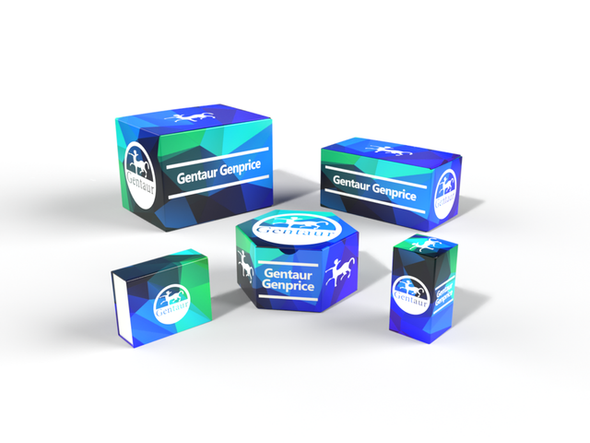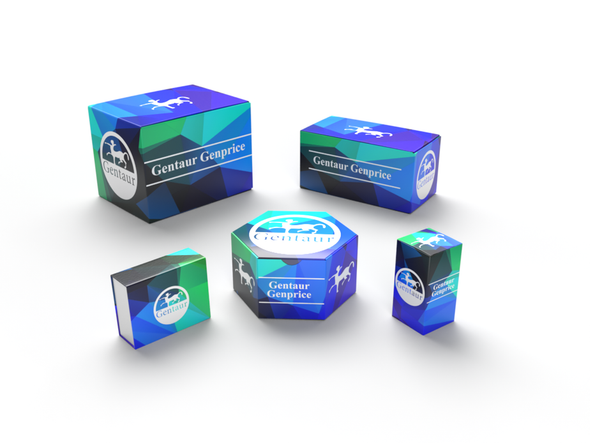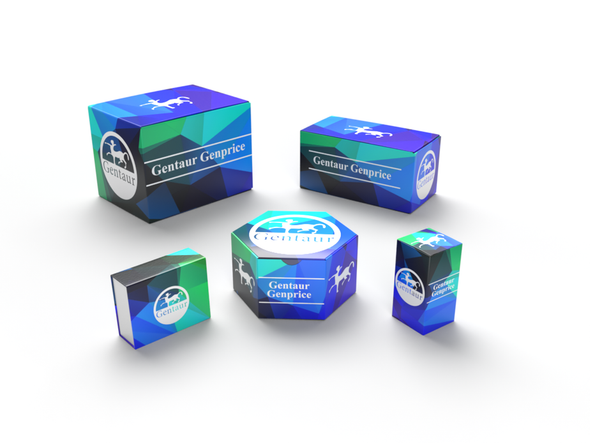740
Mouse Selenocysteine lyase (SCLY) ELISA Kit | AE59816MO
- SKU:
- 740-AE59816MO
- Availability:
- Usually ships in 5 working days
Description
Mouse Selenocysteine lyase (SCLY) ELISA Kit | AE59816MO | Gentaur UK, US & Europe Distribution
Species Reactivity: Mouse (Mus musculus)
Abbreviation: SCLY
Alternative Name: SCL;
Application: ELISA
Range: 0.156-10 ng/mL
Sensitivity: 0.059 ng/mL
Intra-Assay: ≤5.2%
Inter-Assay: ≤7.8%
Recovery: 1, 02
Sample Type: Serum, Plasma, Other biological fluids
Detection Method: Sandwich
Analysis Method : Quantitive
Test Principale: This assay employs a two-site sandwich ELISA to quantitate SCLY in samples. An antibody specific for SCLY has been pre-coated onto a microplate. Standards and samples are pipetted into the wells and anySCLY present is bound by the immobilized antibody. After removing any unbound substances, a biotin-conjugated antibody specific for SCLY is added to the wells. After washing, Streptavidin conjugated Horseradish Peroxidase (HRP) is added to the wells. Following a wash to remove any unbound avidin-enzyme reagent, a substrate solution is added to the wells and color develops in proportion to the amount of SCLY bound in the initial step. The color development is stopped and the intensity of the color is measured.
Product Overview: Selenocysteine lyase (SCLY; EC 4.4.1.16) catalyzes the pyridoxal 5-prime phosphate-dependent conversion of L-selenocysteine to L-alanine and elemental selenium. The deduced mouse protein has 432 amino acids. RT-PCR detected Scly expression in mouse brain, heart, lung, stomach, liver, kidney, spleen, and testis. Western blot analysis detected expression in all mouse tissues examined, with the highest expression in liver, kidney, and testis. Mouse Scly localized to the cytosolic fraction in mouse liver and formed homodimers.Scly catalyzed the conversion of L-selenocysteine to L-alanine. Scly activity required pyridoxal 5-prime phosphate, was specific to L-selenocysteine, and showed maximum reactivity at pH 9.0.
Stability: The stability of ELISA kit is determined by the loss rate of activity. The loss rate of this kit is less than 5% within the expiration date under appropriate storage condition. The loss rate was determined by accelerated thermal degradation test. Keep the kit at 37°C for 4 and 7 days, and compare O.D.values of the kit kept at 37°C with that of at recommended temperature. (referring from China Biological Products Standard, which was calculated by the Arrhenius equation. For ELISA kit, 4 days storage at 37°C can be considered as 6 months at 2 - 8°C, which means 7 days at 37°C equaling 12 months at 2 - 8°C) .










